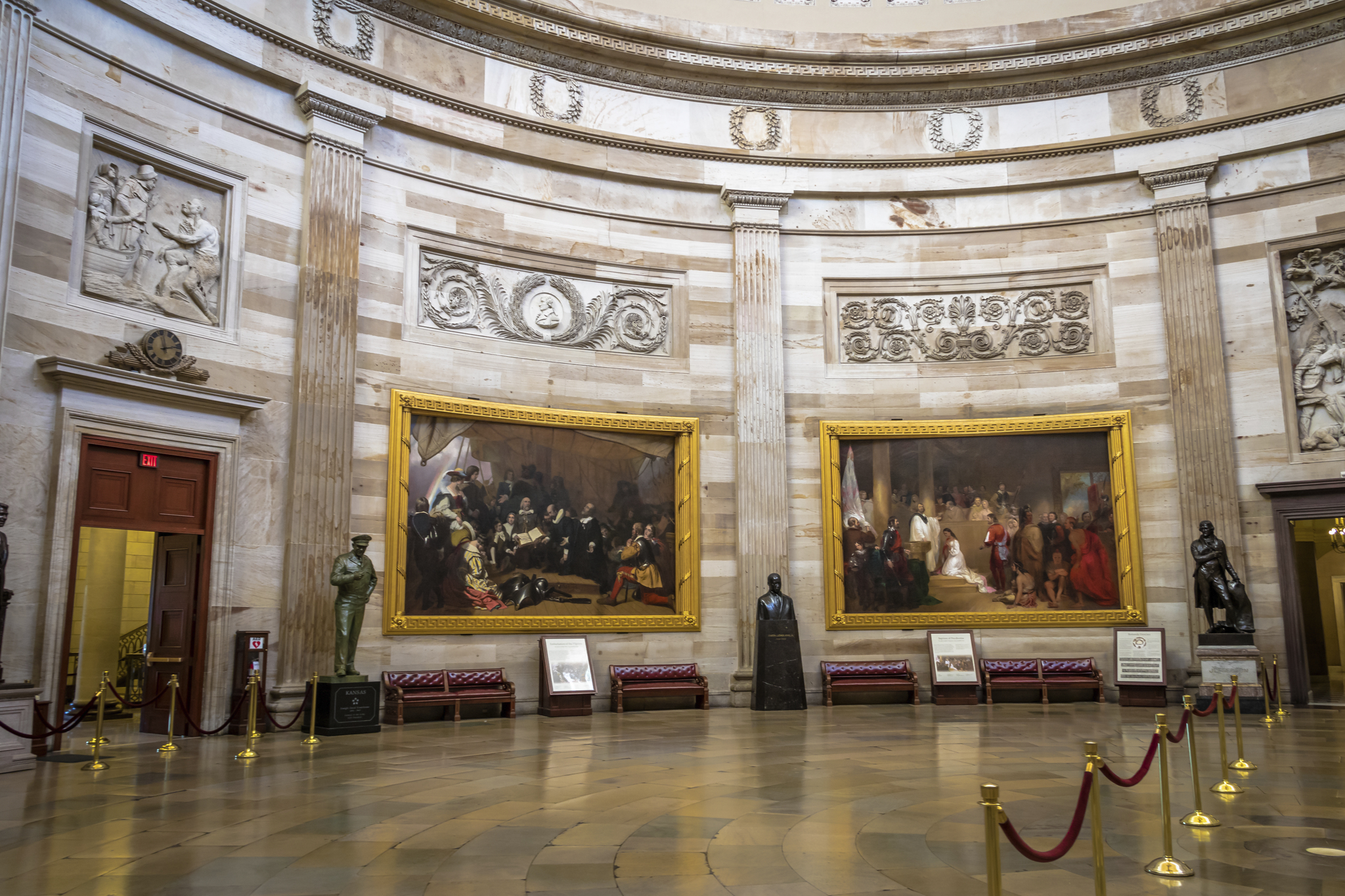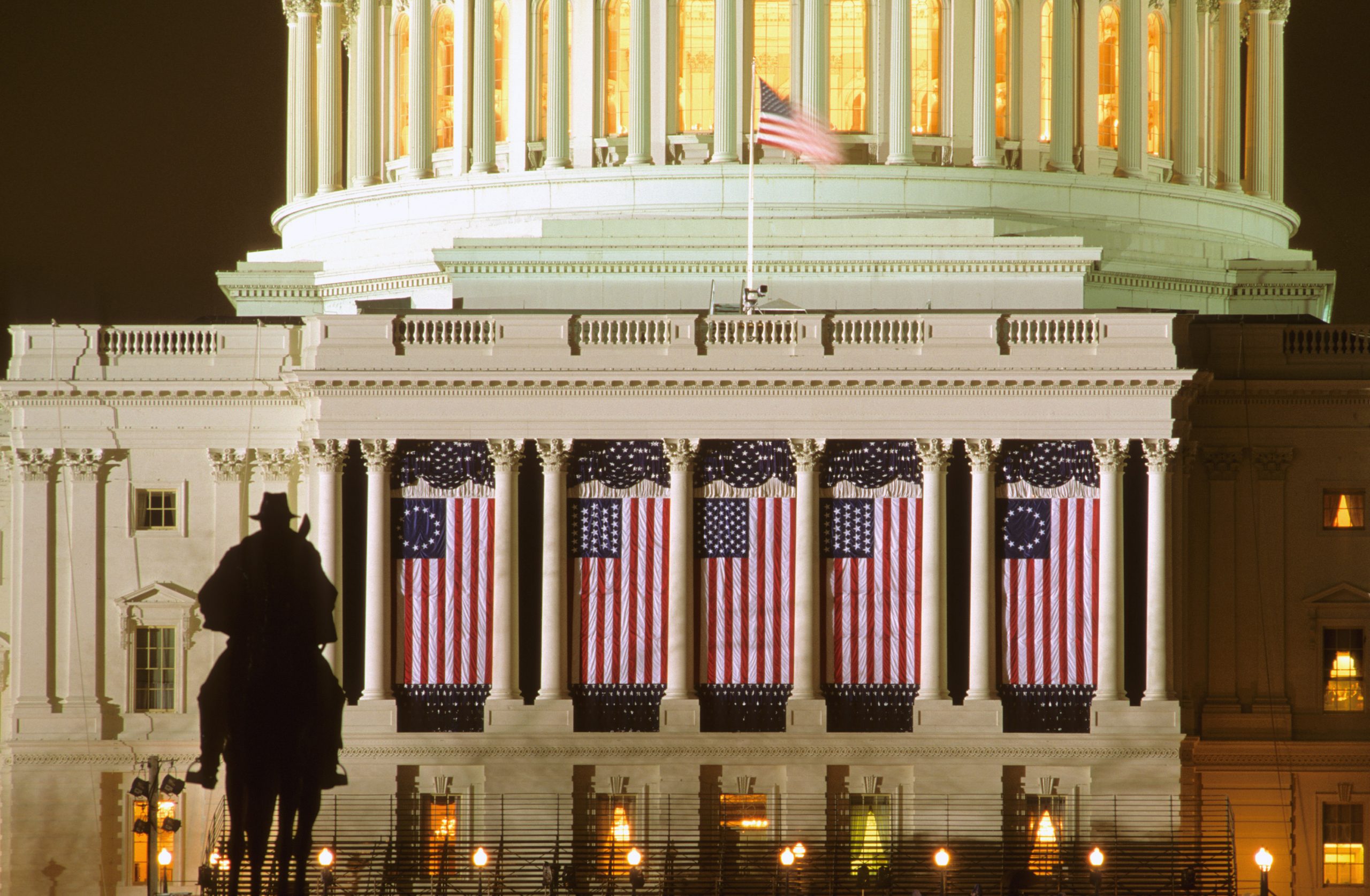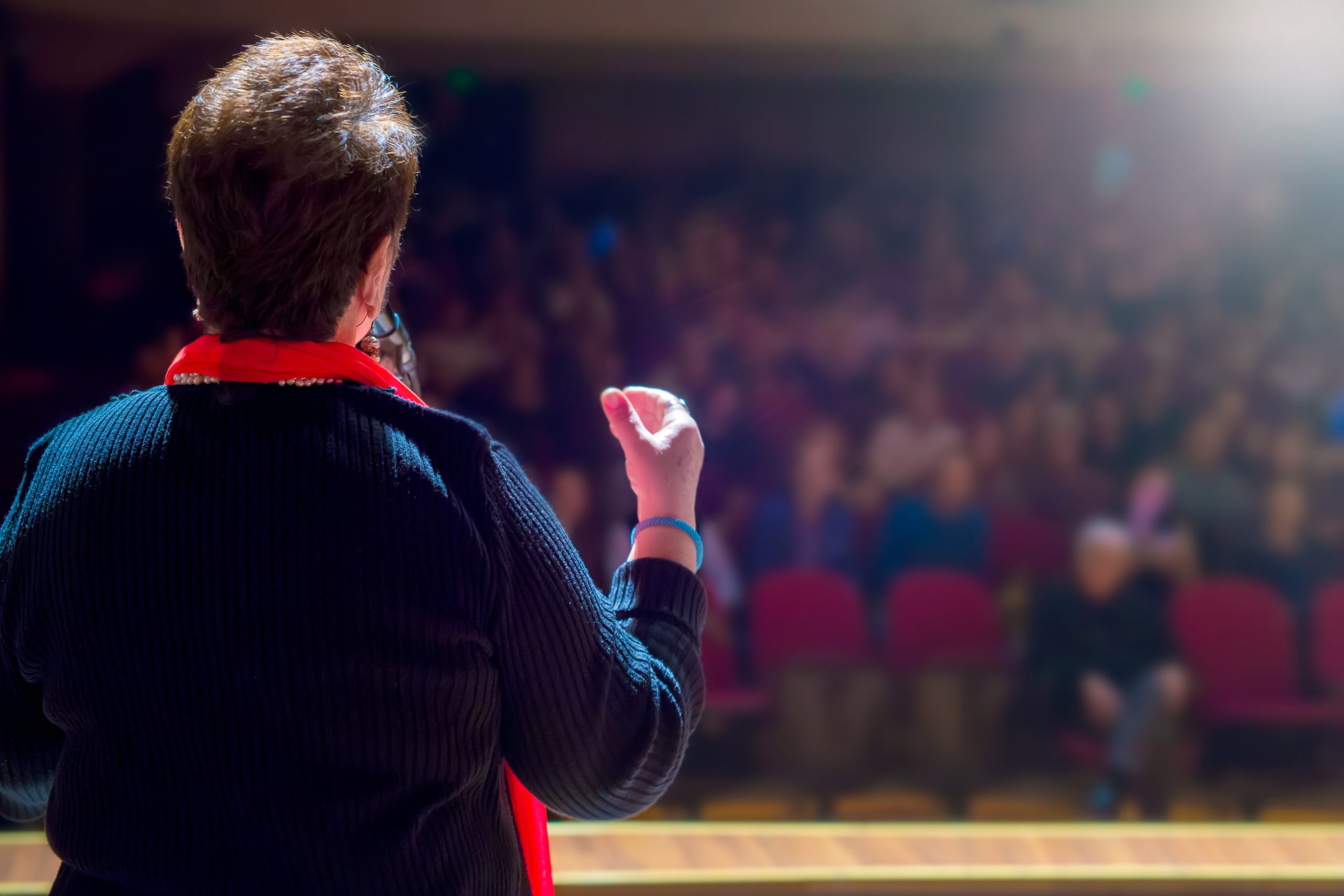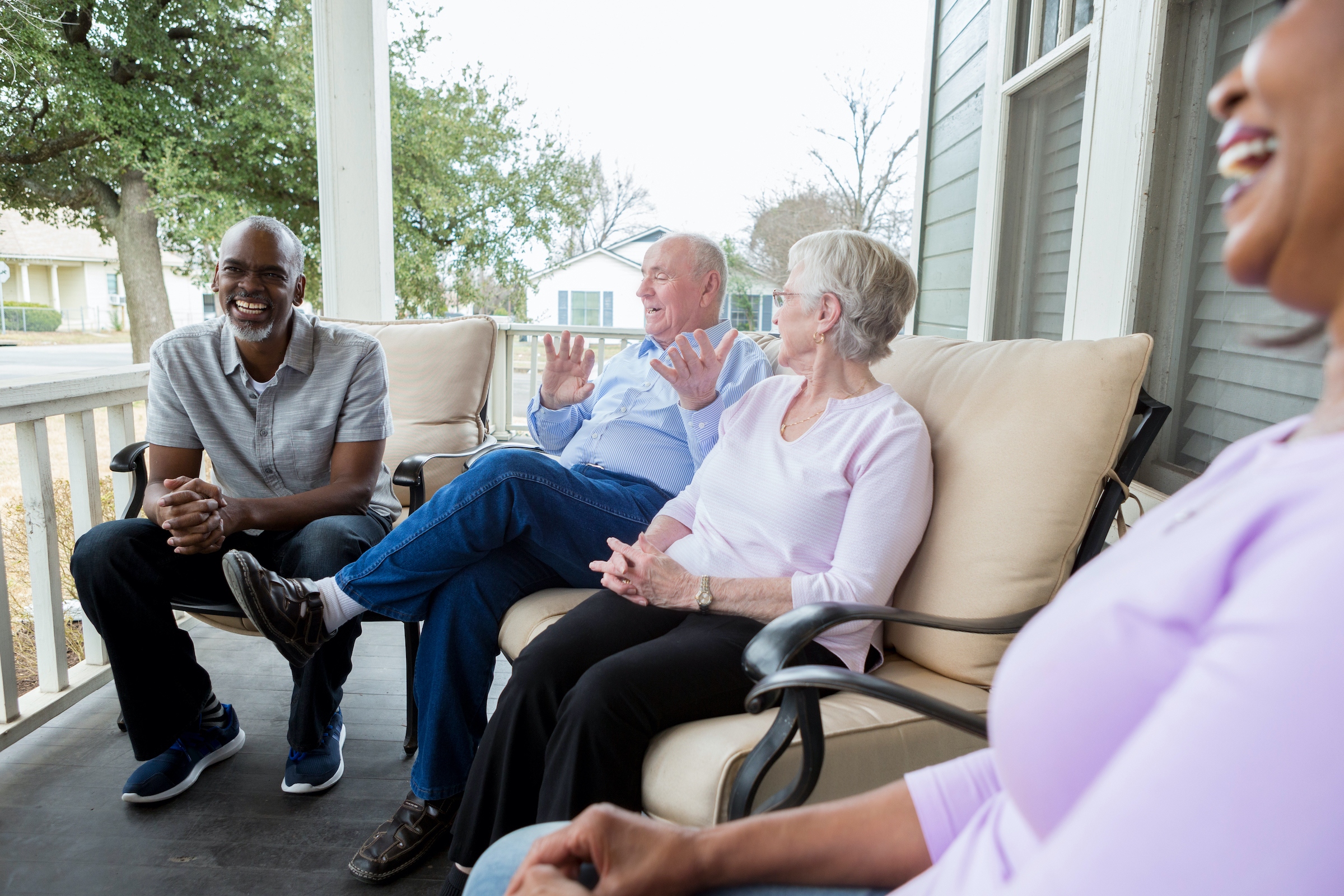Democracy Fund seeks to develop leaders among Capitol Hill staff so that policymaking and Congress reflect the diversity of our country. For me, this is not theoretical. From a paid internship that opened the doors to Congress, to full-time positions with two House members from Puerto Rico, I recall my days on the Hill, eagerly seeking opportunities for professional growth and advancement. In interview after interview, hiring managers on the Hill could not translate my experience leading work under two Committees, speaking three languages fluently and working in an office that represented over four million constituents (which in a state would be represented by six House members and two Senators), into a skill set that would benefit their office in a more senior position.
Despite my desire to remain in public service and three promotions, I hit a wall that kept me from advancing to senior-level positions in Congress. Ultimately, I left the Hill to lead advocacy efforts at the Hispanic Association of Colleges and Universities (HACU), and later, the National Association of Latino Elected & Appointed Officials (NALEO). During this time, I became fully aware that the obstacles I faced in Congress were not personal shortcomings or lack of skills. These barriers to entry and advancement were part of a system of hiring that made it difficult for others like me with no personal political connections, no financial resources to supplement earnings in low or non-paid Hill positions, and no “godparents” to navigate the byzantine maze of career development on Capitol Hill. As a Latina, I saw few walking the halls of the Capitol that looked like me. As a conservative Latina, there were even fewer. Many Latinos are “firsts” in our families: to graduate from college, to work in Washington D.C. and/or to work in Congress. It can be an isolating experience and explains why staff associations are a major part of the support network for certain communities. Though we’ve made some progress, disparities still exist. This lag in numbers and representation explains why there is no formal network of Latino “madrinas or padrinos” that can support entry and mid-level staffers with job counsel and personal references. Today, I am proud to lead the Constructive Politics team at Democracy Fund, where we recognize diverse perspectives as a way to build legislative consensus that results in a stronger, more effective democracy.
That belief drives our investment strategy at Democracy Fund. Since 2017, we have granted more than $4 million to organizations working towards a more representative, diverse and inclusive Congress. Today, those grantees have launched a new coalition, Representative Democracy, to create an ecosystem of diverse leadership talent in Congress, from interns to senior staff. This effort has been three years in the making and reflects the rich insight and learnings from member organizations. Some offer leadership programs while others generate data and execute issue-based campaigns that center diversity, equity and inclusion (DEI) and advocate for legislative change. In honor of today’s launch, I’d like to share some key learnings, shine a spotlight on the work some of these grantees have been doing over the last three years, and encourage you to learn more about how Representative Democracy can be a resource to you.
Lesson 1: Offer paid internships as one of the most direct pathways for underrepresented students into Congress.
It is a well-known fact that internships get your foot in the door. In fact, my paid congressional internship served as the foundation for my career and led to two full-time staff positions, but it would not have been an option for me as an unpaid position. Like me at that time, many students cannot afford this learning opportunity even if it offers a great entryway to the Hill. Pay Our Interns made this gap the center of their campaign that successfully garnered legislative approval for paid internships on Capitol Hill. They argued that the more you make paid internships available, the more you broaden accessibility that will create a diverse applicant pool. This summer, the group released their first report on the diversity of House interns. Beyond mapping out what congressional interns look like, the study “…found strong evidence that the congressional workplace is racially segregated. A lawmaker’s race, political party, and the demographic composition of their congressional district all have a strong effect on whom they hire as interns.”
Another Democracy Fund partner, College to Congress, has developed programs to ensure interns have meaningful learning experiences on the Hill and are able to remain engaged despite the challenges caused by COVID-19. In further testament to adaptation, they digitized their curriculum for students interested in internships and employment in public service — called C2CU — as a series of professional development courses. The approach must be working as more than 540 students from diverse backgrounds have been trained on C2CU and 90 percent of C2C alumni have been hired in political and government-related careers.
Lesson 2: Create more real-time transparency about the demographics of congressional staff
This is a complex endeavor due to congressional election cycles and the fact that Congress does not gather demographic data about its own staff. Since 2015, the Joint Center for Political and Economic Studies has generated some of this data through Hill staff surveys, serving as a model to Congress of how accurate data collection can be undertaken. In fact, the Joint Center’s first Senate report found only seven percent of top Senate staffers were people of color. This report prompted Senate Democrats to focus on demographic data collection to assess the racial diversity of Senators’ offices. These findings and accountability metrics, publicly released for the first time by Congress, were a good first step but much work remains to be done to bring long-term system change and build an inclusive workplace. This summer, the Joint Center’s follow-up Senate report found that people of color make up 40 percent of the U.S. population, but only 11% of all Senate office top staff. The release was featured in the New York Times and includes stark findings on the ratio of employees by racial group relative to the U.S. population.
When you break down the ratio of employees by racial group relative to the U.S. population, the results are alarming.
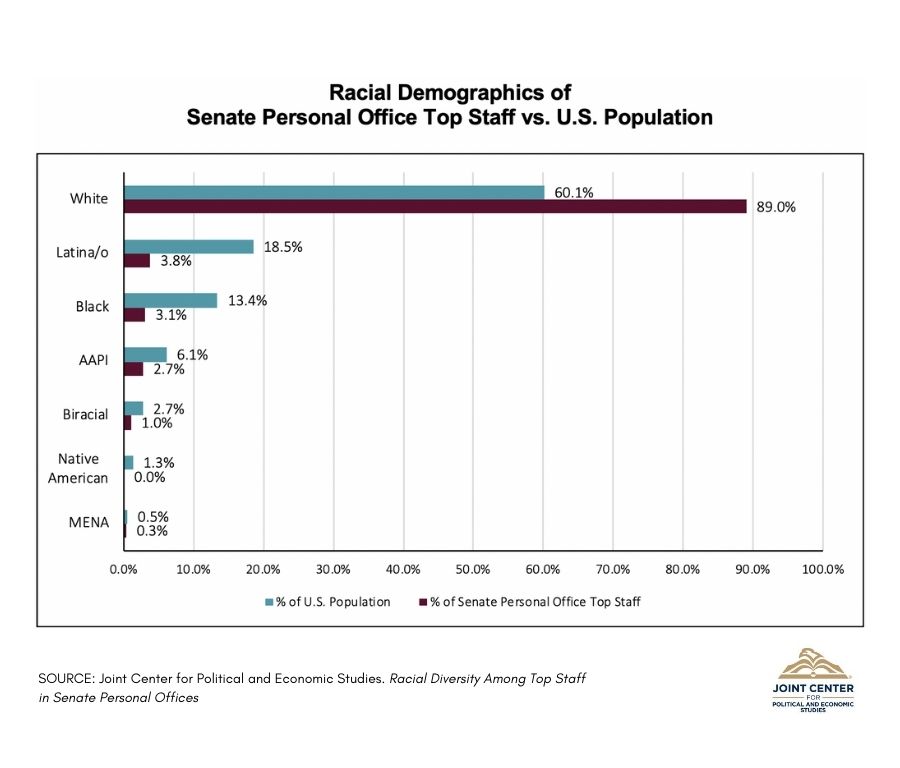
Lesson 3: Invest in leadership development to help diverse staffers advance.
Since 2017, NALEO Educational Fund’s Staff Up Congress program has trained 74 midlevel diverse staff and more than 54 percent have been promoted after participating in their program. The Aspen Socrates Emerging Governance Leaders program is helping diverse congressional staff better understand the role of Congress so they can exercise more effective leadership within the institution. Leadership development is particularly important for congressional staff because they are the behind-the-scenes force that advises legislators on policies intended to represent the interests of all Americans. Understanding the need to provide these opportunities, Congress established the House Office of Diversity and Inclusion with Democratic and Republican staff that will guide offices “to recruit, hire, train, develop, advance, promote, and retain a diverse workforce.” There’s no question about it, these organizations are helping move towards a more functional Congress. They bet on professional development opportunities for their communities and it has paid off.
Lesson 4: Create models for systemic change, not just short-term solutions.
With increased attention being paid to issues of race and racism within the workplace and in our public institutions, we have the opportunity to create models for systemic change instead of continuing programs and policies that, while well-intentioned, ultimately foster the notion that our communities need to work around structural barriers to equity as opposed to dismantling them. Making this shift requires technical expertise and leadership across sectors.
The Brain Trust for a Representative Democracy is a collaborative effort of experts and practitioners on issues related to diversity, inclusion, equity, and belonging (DEIB) in the public sector. The members who comprise the Brain Trust bring a range of experience and knowledge on the latest theory, practical tactics, insight in how to train and change behavior, and expertise on the institution of Congress. The group was formed to develop and be thought leaders on how the concepts of DEIB can be applied to Congress and other public institutions. They are just beginning their work in September 2020 and we look forward to learning from their work.
Diversity By Itself is Not Enough
From interns to senior staff, Democracy Fund grantees are helping to make congressional careers more accessible — to ensure Congress looks like America and creates policies responding to the needs of all Americans. Thanks to their leadership development programs, research, advocacy and leadership, we are closer to creating a more functional Congress with diverse perspectives and career development opportunities for its staff. These programs should continue to grow to help more diverse staffers engage with power in Congress.
We also need more hiring managers to build their capacity to bring in and meaningfully engage more diverse teams. To do that, they will need more allies who can move beyond talking about creating a more diverse and inclusive Congress, to actually doing it. Diversity by itself is not enough. We need to understand how to increase inclusive decision-making. Offices must create inclusive workplaces that engage all staff and recognize the strength they bring to the table. My experience feeling “mismatched” and isolated should not be replaying itself in an institution that serves as a proud icon of our representative democracy. I am grateful that the work of our Constructive Politics team centers my passion to help congressional staffers who look like me and you. Individually, our grantees are making an impact, but the collective power they bring as an ecosystem — providing professional development opportunities and tools for inclusive workplaces — is how we dismantle systems of inequity.
